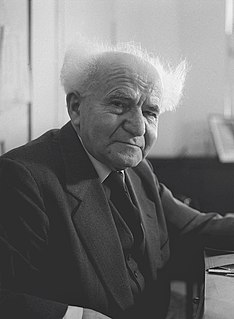A Quote by David Ben-Gurion
It is only in Hebrew that you feel the full meaning of it -- all the associations which a different word has.
Quote Topics
Related Quotes
There are certain concepts, which exist in English, and are unthinkable, untranslatable into Hebrew and vice versa. Hebrew has a system of tenses, which is, in a big way, different from the English system of tenses, probably different than any European system of tenses, which means a different sense of reality, which means a different concept of time. So, things can be translated, but they become different.
Whenever we remember a series of events, we remember them different. We are constantly changing. It's a flaw, but on the other hand, when we say a word, the meaning is not what you put into it. Rather, the meaning of the word is all of the past usages of that word. Like this cloud that makes up the meaning of the word. It's your subject if you write. For instance what you put in that word and what you assume it means, even its flaw. It has a general agreement.
In case any are puzzled by the different translations from which I draw strength and help and delight, it is like this: In studying any object with the microscope we use different lenses and turn the mirror in various ways; each change brings out some new wonder and beauty. So it is for those who are not Greek or Hebrew scholars, and who use the work of scholars to open the meaning of the exhaustible Word-the Bible is richer than any single version can fully show.
Americans of all ages, all stations in life, and all types of disposition are forever forming associations. There are not only commercial and industrial associations in which all take part, but others of a thousand different types-religious, moral, serious, futile, very general and very limited, immensely large and very minute....At the head of any new undertaking, where in France you would find the government or in England some territorial magnate, in the United States you are sure to find an association.
Words can mean different things to different people. It is important to understand what people mean when they use a certain word. Let's make an example. Take the word gay. Fifty years ago, gay meant exclusively cheerfulness, lighthearted excitement, merry or bright colors. Today this word has a different meaning. You won't call a cheerful person gay because it could be understood as something else.









































